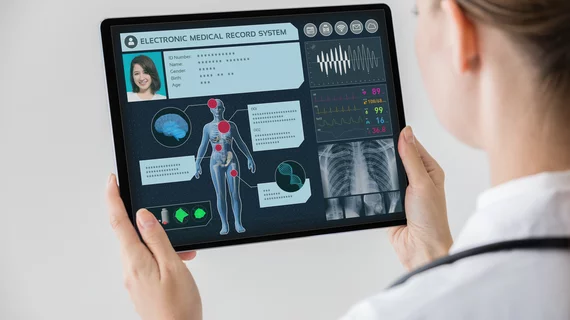EHRs get an ‘F’ from Yale researchers
Electronic health records received an 'F' rating from Yale researchers who analyzed and rated the technologies on quality and efficiency. In addition, EHRs could have a hand in causing high rates of burnout among healthcare professionals, the study found. The researchers published their findings in Mayo Clinic Proceedings in conjunction with researchers at Stanford, Mayo and the American Medical Association.
EHRs were rated lower than other everyday technologies in separate, similar studies. For example, ATMs were given a B rating and Google’s search engine holds an A rating. That may be because of the technology that EHRs tend to follow.
“A Google search is easy,” lead author Edward R. Melnick, assistant professor of emergency medicine and director of the Clinical Informatics Fellowship at Yale, said in a statement. “There’s not a lot of learning or memorization; it’s not very error-prone. Excel, on the other hand, is a super-powerful platform, but you really have to study how to use it. EHRs mimic that.”
Physicians spend between one and two hours on EHRs and deskwork for every hour they spend in direct face-to-face contact with patients, the researchers noted in the study, and this use of EHRs has a direct impact on burnout and be a contributor to physician dissatisfaction. In addition, EHRs can make patient documentation somewhat difficult when it comes to notes and communications across care providers.
“As recently as 10 years ago, physicians were still scribbling notes,” Melnick said. “Now, there’s a ton of structured data entry, which means that physicians have to check a lot of boxes. Often this structured data does very little to improve care; instead, it’s used for billing. And looking for communication from another doctor or a specific test result in a patient’s chart can be like trying to find a needle in a haystack. The boxes may have been checked, but the patient’s story and information have been lost in the process.”
Researchers measured burnout using a validated questionnaire tool called the MBI, which is considered to be the industry criterion measuring tool. Of the 5,197 respondents in the master survey in the study, with a random subset of 25% receiving a subsurvey on HER usability. In this group, 45.9% had at least one symptom of burnout, including a high emotional exhaustion and or/high depersonalization score.
Physicians also found EHR usability to be “poor” and “considered below the usability of many everyday technologies,” the study reads. The EHR was actually rated lower than Microsoft Excel. The study further found that even when physicians find EHRs useful, they are still at risk of burnout.
Certain types of physicians rated EHRs poorly in particular, including dermatology, orthopedic surgery and general surgery.
Researchers noted that tracking the usability of EHRs from physicians is important to track technology improvements.

